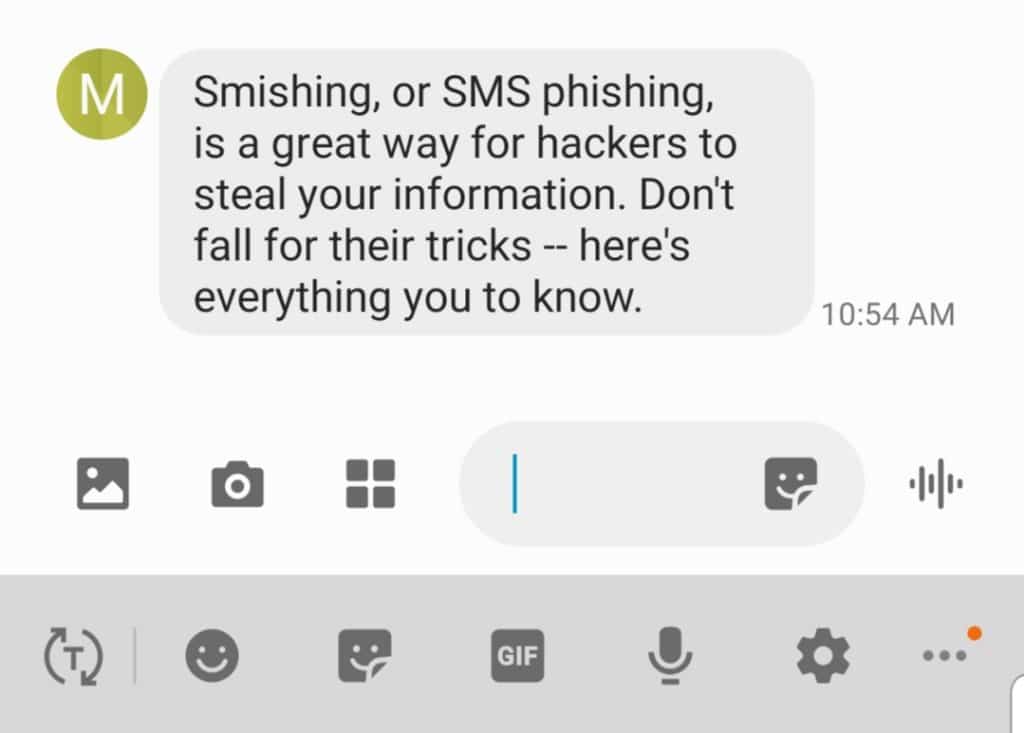The danger of SMS Phishing: how to protect against it?
Today, phishing is becoming more sophisticated and harder to detect. One form of phishing that is becoming more common is SMS phishing, also known as “smishing.” This form of scam uses text messages to trick people into giving away sensitive information or downloading malware to their devices.
What is SMS phishing?
SMS phishing is a form of phishing that uses text messages to trick people into giving away sensitive information or downloading malware to their devices. The text message may appear to come from a trusted source, such as a bank or government agency, and may ask for personal information, such as a password or national registry number. The message may also contain a link that, when clicked, downloads malware onto the device.
How does SMS Phishing work?
The scammers behind SMS phishing use a variety of tactics to trap people. A common tactic is to send a text message that appears to come from a trusted source, such as a bank or government agency.
Another tactic is sending a text message that appears to be from a friend or family member but is actually from a scammer who has taken their phone number or created a fake number that looks like their number. The message may ask for money or personal information.
In either case, the scammer’s goal is to trick people into giving away sensitive information or downloading malware onto their devices.
How to Protect Yourself from SMS Phishing?
The best way to protect yourself from SMS phishing is to be aware of the dangers and know how to recognize a phishing text message. Here are some tips to protect yourself:
- Be wary of text messages that ask for personal information. Legitimate agencies do not ask for personal information, such as a password or national registry number, via text message.
- Be wary of text messages asking for money. Legitimate organizations do not ask for money via text message.
- If you receive a text message from a friend or family member that seems suspicious, contact them to confirm that they sent the message.
- If you receive a text message from an unknown number that seems suspicious, do not reply or click on links.
- Keep your phone’s software up-to-date so you have the latest security features.
- Use antivirus software to protect your phone from malware.
Conclusion
SMS phishing is a growing cyber threat. It is important that you are aware of the dangers and know how to recognize a phishing text message. By following the tips above, you can protect yourself from SMS phishing and keep your personal information and device safe.
Get in touch
Learn more about our sms phishing test options here. Is this not what you’re looking for? Don’t panic, we of course also work on a per-item basis. Please contact us using the form below. We’ll be happy to answer all your questions!

